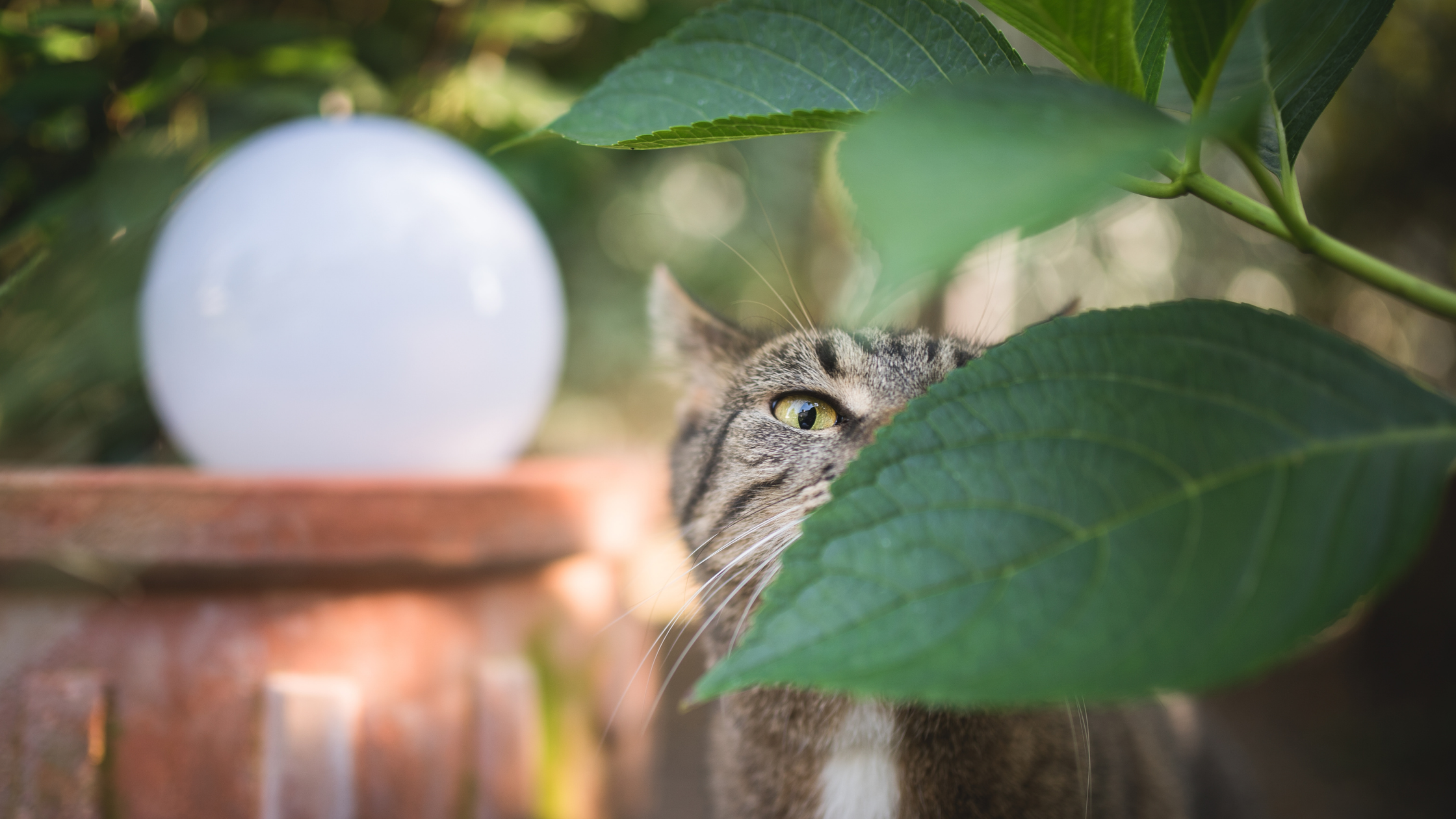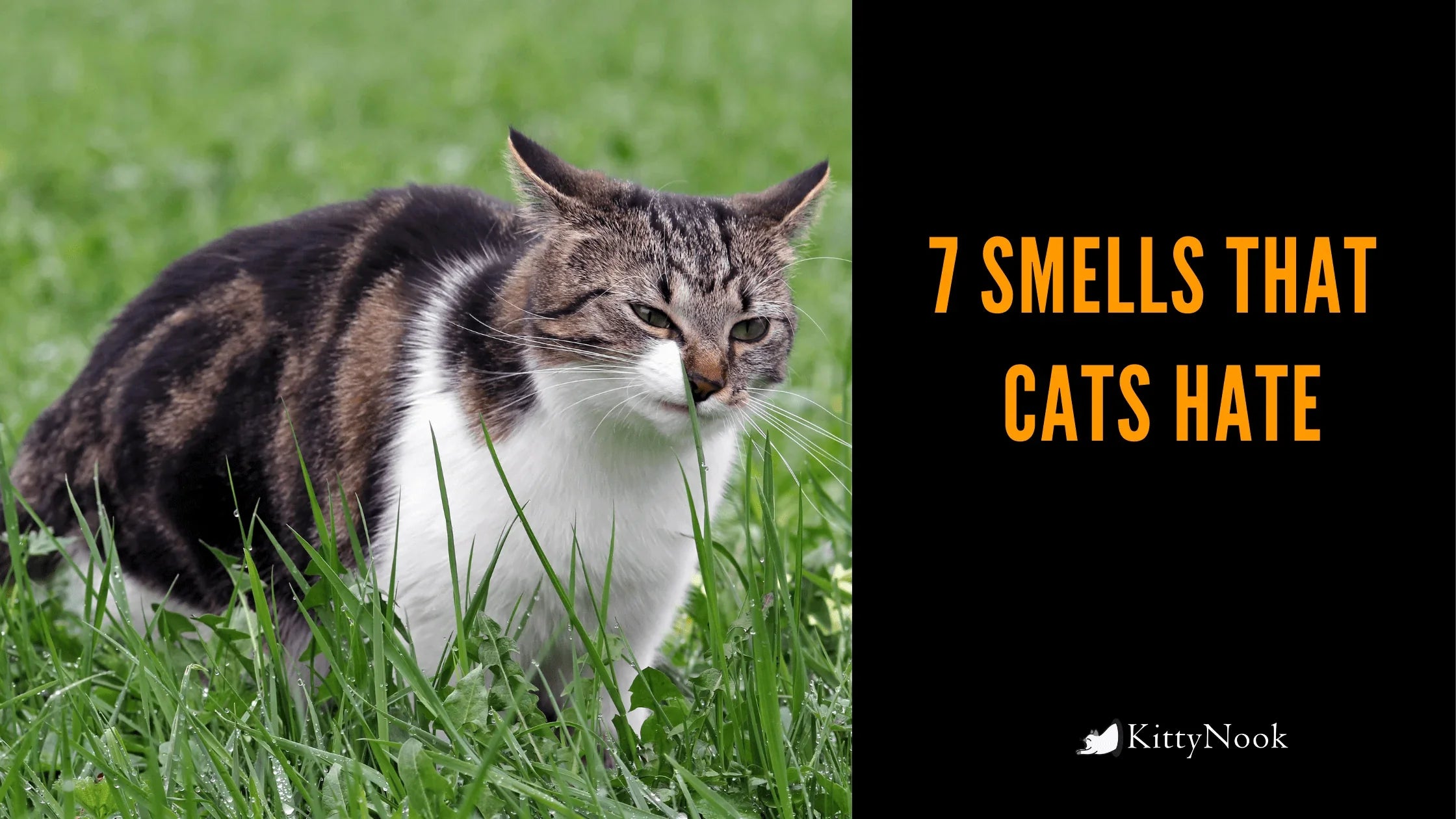Felines have a remarkable sense of smell. To say that they have sensitive noses is an understatement. Their sense of smell is substantially more robust than that of human beings. Cats have between 45 million to 200 million scent-sensitive cells in their nose, whereas humans have merely 5 million. A pet cat's sense of scent is between 9 and 16 times more powerful than yours, so it pays to know what smells do felines dislike.
Cats typically depend more on scent than what they can see or touch when surveying areas and surroundings. Felines can detect smells that we humans have a hard time smelling.
Additionally, cats have "noses." Your feline has a nose with smell receptors, much like humans do. However, they also have a vomeronasal body organ in the roofs of their mouth. This "second nose" is much more in harmony with pheromones.
Knowing What Smells Do Cats Hate: How Can This Be Useful?

Cats are curious creatures and frequently want to check out or stay in areas that we do not want them to--including those that can potentially be dangerous to them—knowing which smells cats do not like can help you guide your feline's behavior. For instance, if your kitty likes sections of your yard way too much, in some cases planting specific herbs can help discourage your pet cat from going there.
If the feline-like scraping surfaces of your house that you would rather he stay away from, spraying the right sort of fragrance might in throwing him off doing this naturally, rather than utilizing feline repellant items that commonly include chemicals.
Moreover, understanding which scents felines dislike helps you recognize their behaviors and choices. For example, when I initially got a cat, I ordered some lavender-scented litter as I thought it looked pretty and smelled good. My feline refused to use it, and I couldn't recognize why until I discovered that cats do not like the scent of lavender.
Remember that while there are some fragrances, felines do not like per se, and fragrances can harm them. I have discussed this more thoroughly in a previous blog.
If you are using fragrances to discourage your cat from particular practices, do NOT use essential oils. Some bring potential dangers to our cats.
Why Do Cats Posses Such a Strong Sense of Smell?

Their extraordinary sense of smell help cats be outstanding hunters as they can sniff victims from long distances away. Nonetheless, this likewise indicates they can sniff cat food and treats from far away!
Male cats mark their territory through urine or scents from glands in their faces and feet. They will sniff at new places to see if they can smell other felines' markings, letting them know if another has marked an area.
Cats also connect via odor. Kittens can not open their eyes initially; they use aroma to find and latch on to mommy! Likewise, felines show affection to their cliques--be it's other animals and people--by scrubbing their heads against each other and their people. This act transfers pheromones and oils to "mark" their favorites.
Butt-sniffing is welcome in the cat world, whereas spraying is more about marking territory. And when it comes to mating, female felines can seek out males while emitting their powerful sex scent, which males can detect.
This level of sensitivity to scent is perhaps another reason are addicted to grooming themselves--picture just how much cleaner you would wish to be if you could smell the smallest hint of fragrance you deem undesirable?
Checklist of Smells that Cats Don't Like

1. Specific Herbs
These include lavender, rue, rosemary, mint, geranium, eucalyptus, pennyroyal, coleus, and lemon thyme. Harmful herbs for pet cats consist of mint as well as lavender in oil form.
2. Strong Citrus aromas, e.g., Orange Peels and Grapefruit
If your pet cat loves jumping onto your kitchen cupboards (as mine does), the strategic placing of citrus fruits could be sufficient to put them off. When it comes to what you can put, felines hate oranges, lemons, and limes.
3. Banana
Professionals think it is probably the potassium in bananas is the reason why cats don't like the smell of bananas.
4. Pepper, Curry, Mustard, and also Cinnamon
In general, pet cats do not like spicy smells as they associate them with potential toxicity. So the next time you take away spicy food, like an Indian meal, don't be surprised if your cat stays out of the kitchen for a while!
5. Pine, Cedar, Wintergreen, and Menthol
I often tend to associate all these fragrances with freshness and the scent of cleanliness. I like it, but my cat Otis does not. A minor hit of their aroma will generally send out a pet cat running.
Wintergreen and also menthol are also toxic for felines.
6. A Dirty Litter Box
If your cat's can hasn't been clean or the litter hasn't been scooped off, your pet cat will undoubtedly quit using it and find elsewhere to do its business.
7. Many house cleansers
You may have noted that most of the things in this list are aromas that are extremely pleasant to humans and are typically connected with cleansing products.
These scents, plus the chemicals that common in most home cleansers, imply that your pet cat will not like most cleaning products you use in your house.
It is essential to be conscious of this when it concerns cleaning your pet cat's favorite hangout places and crucial products. For example, I have been using baking soda at the bottom of my cat's litter tray in an attempt to lower odor without disturbing him.
I have been informed that felines do not like perfumes--and I have also been told that pet cats can love perfume--and frequently exceptional brands! So you might wish to see what your cat does and does not like. But don't spray perfume directly onto them.
So What Smells Do Our Pet Cats Like?

Now that you know your pet cat's smells may not like, how about some scents they like?
Well, of course, there is catnip. Valerian root is also similar to catnip in terms of its effects on cats. Olive leaves can likewise have a somewhat catnip-like effect on your cat that they will delight in.
Your cat will certainly probably love your odor. Whenever I return from a run, my cat is around my shoes, and he gets my sweaty socks, too!
Our favorite felines are very conscious of scent--much more than we do. Use this understanding to find all-natural methods to defer your cat from unwanted behaviors while keeping it safe for them.





















